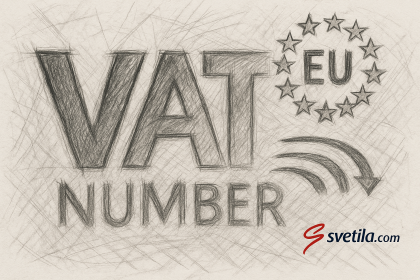Understanding EU VAT Numbers: Registration and Verification

What Is an EU VAT Number and Why It Matters
An EU VAT number is a unique identifier assigned to businesses that are registered for Value-Added Tax (VAT) within the European Union. It plays a key role in cross-border trade, ensuring that goods and services can be exchanged across member states without unnecessary tax complications.
This number allows companies to charge, collect, and remit VAT appropriately. It also helps avoid double taxation, as VAT is collected in the destination country rather than at every stage of the supply chain. For any business operating in or with the EU, understanding how VAT numbers function is essential.
How to Obtain an EU VAT Number
To receive a VAT number, a business must register with the tax authority of the EU country in which it operates or is established. While the process varies slightly between member states, most require:
- Legal company registration details
- A clear description of the business’s activities
- Proof of business presence or establishment in the country
- Estimates of turnover and expected taxable transactions
Once approved, the business is issued a VAT number specific to that country, usually beginning with a country code (e.g., DE for Germany, FR for France).
Why VAT Number Verification Is Important
When doing business within the EU, it’s not enough to simply have your own VAT number—you also need to verify the VAT numbers of your trading partners. This is crucial to:
- Ensure that your partner is a legally registered VAT payer
- Apply the correct VAT treatment to B2B transactions
- Prevent fraud or unintentional tax violations
How to Verify EU VAT Numbers
VAT number verification is done via the European Commission’s VIES (VAT Information Exchange System). This tool allows businesses to:
- Enter a VAT number and confirm its validity
- Match the number with official company details
- Download or print verification confirmations for accounting records
VIES ensures the data is up to date and sourced from national tax databases across all EU member states.
Conclusion: Why It All Matters
Whether you are an online retailer, a manufacturer, or a service provider, understanding EU VAT numbers is a non-negotiable part of doing business in the European market. From registration to verification, these numbers:
- Enable fair and consistent taxation
- Support transparency in trade
- Help businesses operate legally and efficiently across borders
Mastering VAT compliance is not just about avoiding penalties—it’s about gaining trust, improving efficiency, and enabling your business to grow within the EU single market.






